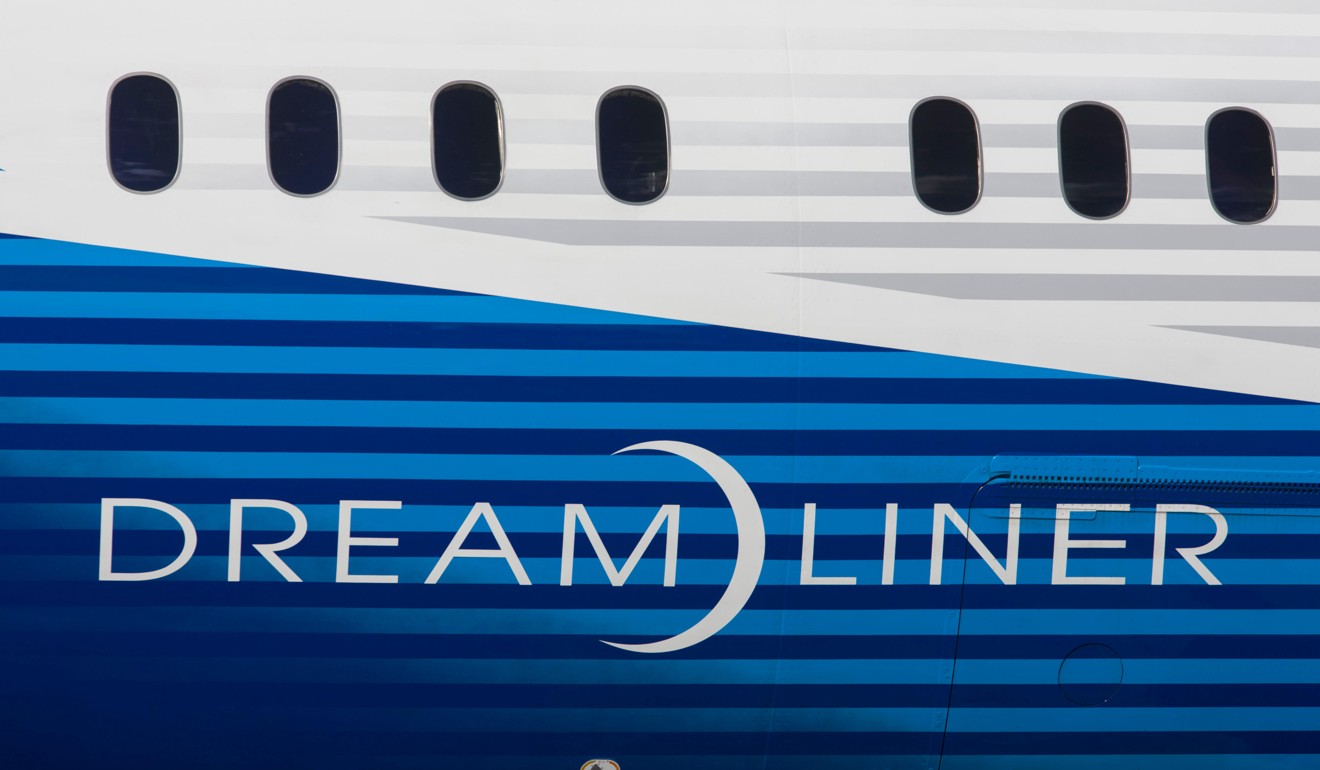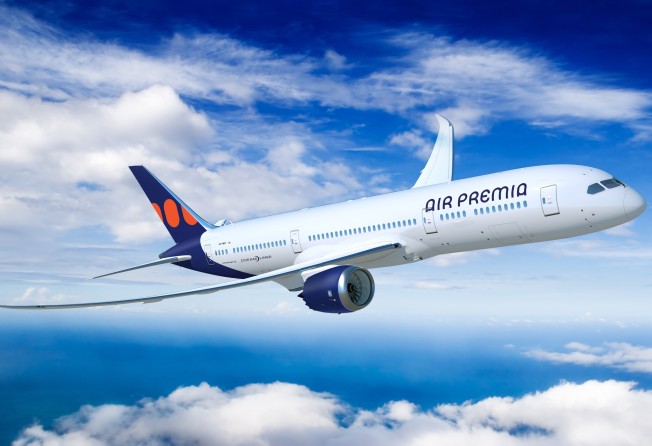
New Korean airline hoping Chinese cash can help it soar after agreeing US$1.4 billion Dreamliner deal with Boeing
- Start-up Air Premia seeking investors as it steels limelight at Airfinance Journal Asia-Pacific conference
- New carrier is targeting low-cost travellers and promises extra legroom in economy as part of sales pitch

New Korean airline Air Premia wants Chinese investors to help it take off as the company arrived in Hong Kong to raise funds and buy five new Boeing Dreamliner aircraft in a billion-dollar deal.
The Seoul-based company is one of several new airlines in Asia poised to launch in the coming 12 months as competition in the region heats up.
In an interview at the Airfinance Journal Asia-Pacific conference, the company said it was banking on giving passengers an extra couple of inches of room to make flying more comfortable, win over travellers with cheaper fares, and become a credible threat to the established order of Asian airlines.
Peter Sim, the start-up carrier’s CEO, described it as a hybrid, combining the best of traditional and low cost airlines.
The company stole the limelight at the conference on Wednesday, as it agreed a deal with Boeing, committing to buy five 787-9 Dreamliner aircraft to support its bold long-haul plans in a deal valued at US$1.4 billion (HK$10.9 billion).

While more airlines squeeze seats into planes, Air Premia has bucked the trend in appealing to a younger but also mass audience, offering 35 inches of extra legroom on “economy plus” seats, as the mainstay of its business in a two-class aircraft, complemented by a premium economy product.
The fledgling airline aims to fly regionally to Hong Kong, Hanoi and elsewhere in Southeast Asia, and longer haul, reaching the west coast of the United States.
The airline’s management team was also in Hong Kong to seek funding for its airline and new aircraft, and is seeking to raise between US$60 and US$80 million in Series B funding until the first quarter of next year, and so far has attracted US$40 million.
Sim is looking towards the mainland to support his company’s ambitions. “Chinese investors are welcome to come on our strong journey,” he said.
“We describe ourselves as a full-service provider. We pick the better parts from the full service and low cost carriers. I would describe our business model as having simplicity, being cutting edge, higher efficiency, with two classes [in the plane] to offer a competitive price edge.”
The carrier has broken away from many of the typical conventions in the airline business. Apart from snubbing the more lucrative business class seats, it is not looking at smaller aircraft to support the transfer of passengers between destinations with less demand.
The airline also has no industry backing, and will bank on the disloyalty of seasoned travellers seeking cheaper fares.
Among the collective investors, Seouleaguer, a distributor of Botox and fillers, is a major shareholder with a 9.53 per cent stake in Air Premia.
“We think there is a market waiting for us,” said Sim, 42, a lawyer by training and formerly the head of a biotech company.
“The demand for long-haul travel, business trips is increasing, and they need better choices than just first, business and economy class for business and leisure trips. We give more legroom compared to prices.”
However, airlines are operating in a challenging economic environment and a number of factors has closed a number of airlines in 2019 including Thomas Cook, Wow Air, Germania, Jet Airways, and Avianca Brazil, to name but a few.
Airlines of a similar model or concept to Air Premia, such as Norwegian Air, which has rapidly added international flights, but is now saddled in debt and has had to restructure its financial position.
Sim believes the downturn in the airline industry in the business cycle has peaked.
“We think we have dodged the worst case scenario in the business,” he said. “Now is the lowest time for conditions but we think it will get better into next year.”
Around Asia, there are a number of start-up airlines getting ready to launch following the path of Air Premia, including long-haul low-cost carrier Zip Air by Japan Airlines, and Taiwan’s Starlux, while Vietnam’s Bamboo Airlines has also added itself to the mix.